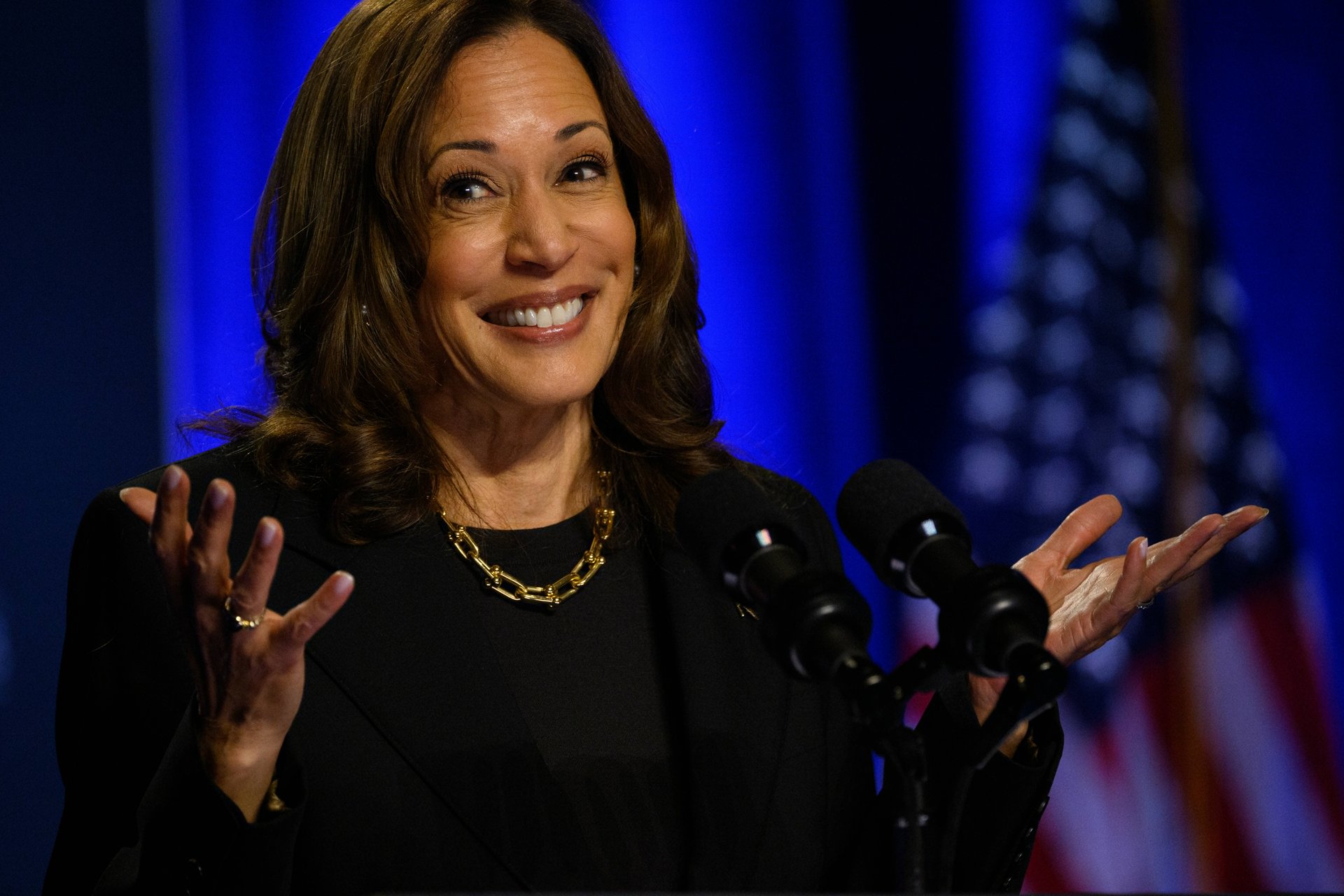Kamala Harris is wooing crypto voters in the homestretch of the presidential race
Both candidates now support the blockchain technology

Vice President Kamala Harris has recently begun positioning herself as a pro-crypto leader, sparking excitement among cryptocurrency enthusiasts who have long awaited her stance on the topic.
Suggested Reading
On Wednesday, during a speech at The Economic Club of Pittsburgh, Harris emphasized that blockchain, AI, and other emerging technologies would play a central role in her administration if elected in November. Two days prior, she explained her support for AI and crypto at a $27 million fundraiser in New York. The comments are Harris’ first known public comments on blockchain or cryptocurrency.
Related Content
This sudden pivot to crypto comes with just 40 days remaining until the U.S. presidential election, a time when the race is tightening and every potential voting bloc could be crucial.
What prompted Kamala to become pro-crypto?
Harris’s back-to-back comments on cryptocurrency within a week have raised questions about the timing. Alexander Blume, CEO of Two Prime, an SEC-regulated Registered Investment Advisor specializing in digital asset derivatives and a former technology advisor to the Bill & Melinda Gates Foundation, suggests her sudden focus on crypto could be strategic. According to Blume, crypto-focused voters might hold the potential to sway the outcome of the election.
“With over 50 million US crypto owners, many of them passionate, single-issue voters, there is a chance their vote could be decisive in swing states like Michigan, Wisconsin, and North Carolina,” he told Quartz in an email.
Competing with Trump on crypto
After Harris’s nomination for the presidential race, her camp seemed intent on currying favor with crypto enthusiasts ahead of this November’s election. A group called Crypto4Harris held its first virtual gathering in August to support her campaign and push her to end the Biden administration’s crackdown on the cryptocurrency industry. Similarly, a group of leading crypto executives participated in a conference call the same month with White House officials and an adviser to Harris, sharing their concerns about current and future crypto regulations.
The Harris campaign’s recent efforts aimed to position the Vice President as equally serious about cryptocurrency—much like Donald Trump, the Republican presidential nominee, who has branded himself a “crypto candidate” this election cycle. Trump has even accepted donations in Bitcoin, Ether, Dogecoin, Solana, and other cryptocurrencies for the campaign. He participated in a Bitcoin conference in July, where he advocated for the establishment of a national Bitcoin reserve.
Blume noted that FairShake PAC—one of the best-funded in the country—has been aggressively backing pro-crypto candidates this election cycle, which has boosted Trump’s support within the crypto community. As Election Day approaches, Harris recognizes the need to shift momentum in her favor or risk losing critical ground, he added.
What about Harris’s understanding of crypto?
Harris’s position on cryptocurrency regulation and policy remains unclear, as does her depth of understanding on the technology. So far, her statements have been broad and vague, offering little insight into her approach to crypto. Blume suggests that neither presidential candidate appears to have a deep technical understanding of cryptocurrency.
“In Trump’s case, however, he’s been more active in courting crypto voters and I think he at least understands the main issues that matter most to this industry. Harris doesn’t appear to have that same understanding of what policies are most important,” he said.
Moe Vela, a senior advisor at Unicoin and former adviser to Joe Biden during his vice presidency, is optimistic about her understanding of crypto. Given Harris’ extensive history working with Silicon Valley and tech leaders as a U.S. senator representing California, Vela is hopeful that Harris understands crypto’s enduring presence and its potential as a powerful economic force.
“While Mr. Trump continues his political bluster on crypto, she brought in two crypto experts as senior advisors in David Plouffe and Gene Sperling,” he told Quartz in an email.
Yet even as crypto emerges as a surprise campaign issue, questions loom large over the future of cryptocurrency regulation. Despite both candidates’ overtures to crypto enthusiasts, neither has outlined a clear policy agenda, leaving the industry’s fate uncertain regardless of who clinches the White House in November.